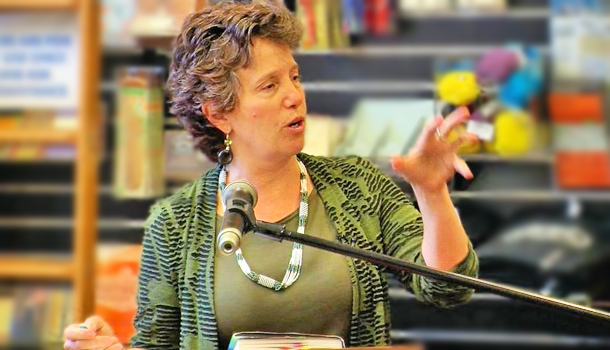
Author Dr. Suzanna Danuta Walters Challenges Gay Orthodoxies at Rice Lecture in February
By Brandon Wolf
Dr. Suzanna Danuta Walters’ 2014 book The Tolerance Trap earned her much acclaim within academic circles—and also inspired hate mail from members of the LGBT community. This is what happens when someone is not afraid to challenge the twin pillars of the entire LGBT equality movement: the genetic basis of homosexuality and the deep significance of achieving marriage equality.
Walters will lecture next month at Rice University, presenting the theories in her book. She is known for her wit and the use of personal anecdotes. Sounding neither shrill nor superior, she puts forth her ideas with easy confidence. She insists on time to interact with her audiences, answering questions face to face.
“Tolerance Is a Dead End”
 At the heart of Walters’ thesis is her perception that as the LGBT community has settled for tolerance, they have simply become gay versions of straight people. Rather than mimicking heterosexual society, Walters believes our community should embrace our uniqueness and work to transform the larger society. Acceptance of differences and openness to others builds a stronger social fabric.
At the heart of Walters’ thesis is her perception that as the LGBT community has settled for tolerance, they have simply become gay versions of straight people. Rather than mimicking heterosexual society, Walters believes our community should embrace our uniqueness and work to transform the larger society. Acceptance of differences and openness to others builds a stronger social fabric.
Walters rejects the common gay/straight binary, which she feels is limiting the movement to those who meet narrow criteria. It continues to foster the near-invisibility of bisexuals, and relegates to the sidelines those who are gender-fluid and sexually diverse.
One of her examples of societal transformation is the old “gay” stereotype of women wearing Doc Marten boots or men wearing earrings. In today’s world, both genders can wear these fashion accessories without being labeled.
The concept of “tolerance” is also a dead end to Walters. She notes that the word was originally used to determine how much medication people could take before it threatened to kill them. To her, “tolerance” means enduring bad things—an aching back or a boring movie that one’s partner loves. LGBTs deserve far more than simply being “tolerated.”
What Happened to Kick-Ass Gay Activism?
Walters wonders what happened to the bold activism of the 1970s. She recalls one London activist who used to say, “We do want to frighten the horses!”
More perplexing to her is the focus placed on gays in the military and on marriage equality, since she finds both institutions confining and limiting. She remembers when people used homosexuality to avoid the military. As a feminist, the word wife, with its historical connotations of ownership, makes her shiver.
However, Walters’ conviction that draws the loudest activist ire is her rejection of the “born this way” ideology. “If being gay is not problematic, why is science even studying it?” she asks. She warns of the historical genetic philosophies that have been used against Jews, blacks, and women. And she cautions that identifying a gay gene would make a gay fetus a prime candidate for abortion.
Robust Integration
In place of what Walters sees as tepid tolerance, she advocates for deep and robust integration. She points out that the civil-rights movement did not simply achieve voting rights and then consider the game won. Nor did the feminist movement close down after the Roe v. Wade abortion-rights victory.
Walters perceives the current LGBT rights movement as diluted and minimized—and perhaps even headed toward extinction. “Is being accepted by the heterosexual majority really the best our movement can come up with?” she asks.
The common American definition of “gay” is vastly inadequate, in Walters’ estimation. In Latin America, only the penetrated partner in sexual activity is “gay.” And the U.S. Native American concept of “two-spirit” also fails to fit the standard model.
A Brave New World
Many activists may point out—and possibly correctly—that the strategies used to get us to where we are today were necessary. “Becoming like them” has helped heterosexuals identify more easily with LGBTs.
But Walters offers a new model of LGBT activist thought that is bold and daring—one that could ensure full civil rights and transform American culture. If we imagine a world in which heterosexuality is not the default norm, society opens itself instead to a wide variety of differences.
For people who like being challenged with new ideas—and who care deeply about our movement’s future—spending a late afternoon in February with Dr. Walters will not disappoint.
Dr. Walters is a professor of sociology and the director of Women’s, Gender, and Sexuality Studies at Northeastern University in Boston, where she also serves as editor-in-chief of the feminist journal Signs: Journal of Women in Culture and Society. Her visit to Houston is sponsored by the Rice University Center for the Study of Women, Gender, and Sexuality. She will speak on February 4, 2016, 4:00–5:30 p.m. Admission is free. Further information: 713.348.0000.
Brandon Wolf is a regular contributor to OutSmart magazine.











Comments